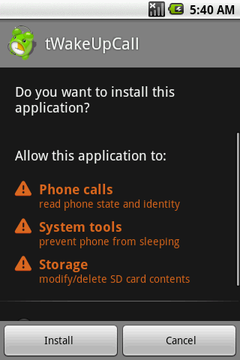HardOCP News
[H] News
- Joined
- Dec 31, 1969
- Messages
- 0
A new reports says that a fifth of Android apps out there expose your private data. Heh, apps that expose you? Are you sure that’s not a feature? 
Meanwhile, dozens of apps were found to have the same type of access to sensitive information as known spyware does, including access to the content of e-mails and text messages, phone call information, and device location, said Dan Hoffman, chief technology officer at SMobile Systems.
![[H]ard|Forum](/styles/hardforum/xenforo/logo_dark.png)
